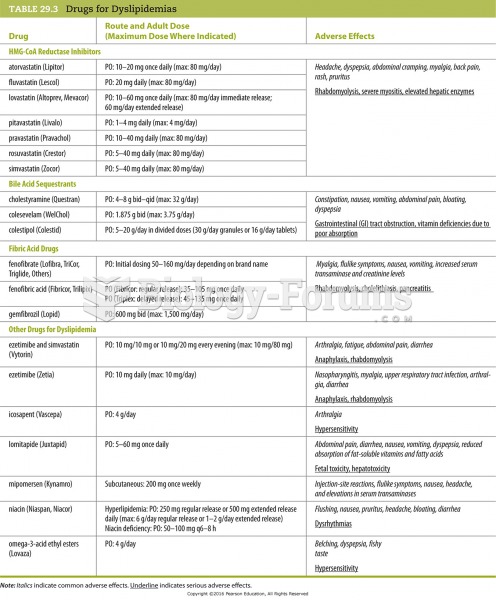|
|
|
Earwax has antimicrobial properties that reduce the viability of bacteria and fungus in the human ear.
Over time, chronic hepatitis B virus and hepatitis C virus infections can progress to advanced liver disease, liver failure, and hepatocellular carcinoma. Unlike other forms, more than 80% of hepatitis C infections become chronic and lead to liver disease. When combined with hepatitis B, hepatitis C now accounts for 75% percent of all cases of liver disease around the world. Liver failure caused by hepatitis C is now leading cause of liver transplants in the United States.
Cyanide works by making the human body unable to use oxygen.
Less than one of every three adults with high LDL cholesterol has the condition under control. Only 48.1% with the condition are being treated for it.
Cancer has been around as long as humankind, but only in the second half of the twentieth century did the number of cancer cases explode.







